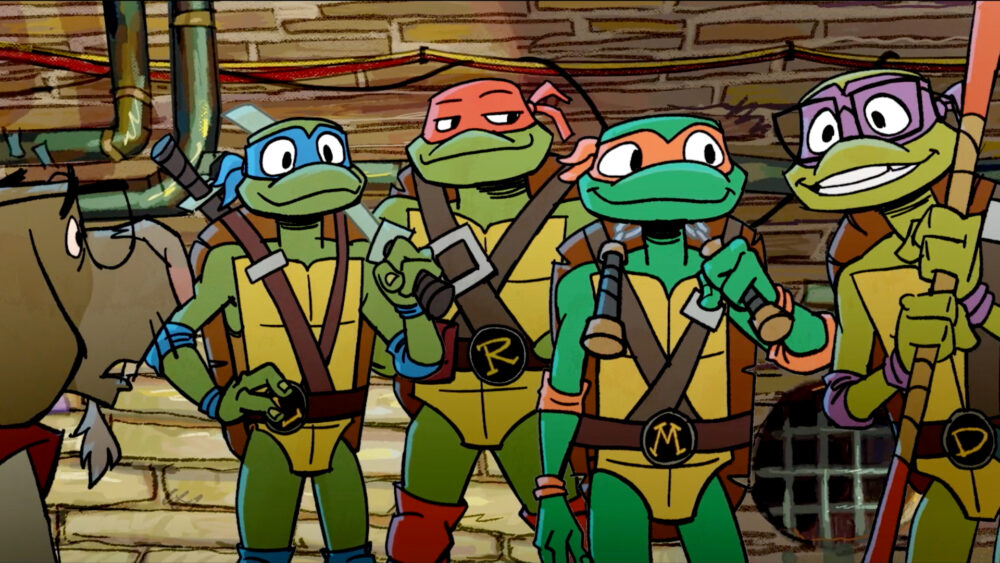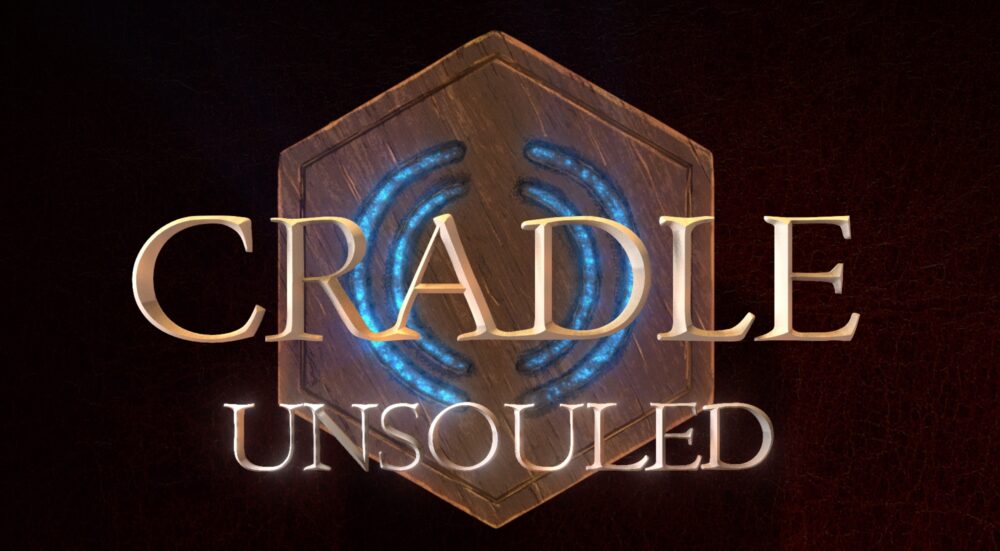[youtube https://www.youtube.com/watch?v=suyruCTA2I4&w=640&h=360]
There are certain directors whose new movies should be cause for jubilation. One of them, without any argument, should be the legendary cult Chilean filmmaker Alejandro Jodorowsky. Once the premiere filmmaker for the beautiful philosophies and absurdities one would associate with the surreal (and predating those like David Lynch and Nicolas Winding Refn, who Jodorowsky would eventually become a mentor of sorts to) with films like El Topo and Santa Sangre, Jodorowsky took an extended period of time off after his last film The Rainbow Thief took a harsh toll on him. When it seemed he would only be a fixture on the Q&A circuit, in 2013, Jodorowsky made an audaciously triumphant return with The Dance of Reailty (La danza de la realidad), the first in a multi-part autobiography of sorts mixing philosophies and styles together. As the second entry in the anthological series, Endless Poetry (Poesía sin fin) demonstrates, the story’s really getting fired up and the man behind the camera is still firing on all cylinders.
Beginning immediately where the introductory title ended – a family standing on a small boat heading into an uncertain future as cardboard cutouts of the people they’ve interacted with “wave” goodbye – the Jodorowskys have relocated from their home of Tocopilla to the Chilean capital of Santiago, where father Jaime (played again by Jodorowsky’s eldest son Brontis) has demonstrated the empathy he discovered in his earlier endeavors was short lived when he subjects two diminutive customers to an especially demeaning abuse outside his shoe store early on, something that carries over into his daily family life. Young Alejandro (also returning is Brontis’s son Jeremias Herskovits to play his grandfather as a younger man) has come to that point all youths reach in life where he’s ready to break away from his father’s near tyrannical ideals of life and lead what he feels destined for.
Fate, and the advice of the director himself, lends a helping hand in the form of a book of Federico García Lorca’s poems, scratching the itch this artistry has left Alejandro with. Jaime, refusing to let his son grow up to become a maricon (you’ll have to look the meaning up on that one for yourselves), forbids the pursuit and demands his son become a doctor in the only way he knows how: harsh intimidation and a psychological effect that’s one of the film’s most visually comedic set pieces. Alejandro’s response: to run away from home, boarding with a group of performers and artists who help him navigate his burgeoning adulthood and what lies ahead on the road to becoming a great poet. As a young adult – beautifully played by Jodorowsky’s youngest son Adan, also serving as the film’s composer – a voyage of adulthood is charted through the bastions of life that will define the man Alejandro becomes, both on and off camera.
First off, homage is demanded for Jodorowsky. Much like its predecessor, Endless Poetry, with such a beautifully opulence and absurdity that ranks with the very best of his oeuvre, is well on its way to becoming part of one of the most ambitious experiments ever committed to narrative film. The idea of an artist using his preferred medium to explore their backstory and those events that shaped their lives is not unheard of, but Jodorowsky, well into his 88th year and armed with quite the storied life, is railroading past the set expectations and, thankfully, showing no signs of stopping. Armed with the lush imagery of legendary cinematographer Christopher Doyle, the exaggerated yet meticulously crafted costumes designed by his wife Pascale and his own stylish reimagining of 1940s Santiago, Jodorowsky’s vision is quite the whimsical experience that further reflects his place as one of international cinema’s most foremost artists.
But there is also the darkness that humanity’s penchant for whimsy is intertwined by, both from the the threat of the changing political climate to the behaviors of close friends and family. A good portion of the film where Alejandro discovers his sexuality, after earlier acknowledging his own heterosexuality at the cost of a friendship with a lovelorn cousin who ultimately comes to a less than whimsical fate, when taking tempestuous poet Stella Díaz Varín as his lover goes to be one of Endless Poetry’s most meditative and provocative sequences. Not because of some deeply philosophical idea about poetry and art broached by the story, but Jodorowsky’s decision to have Pamela Flores, the same actress playing Alejandro’s musically oriented mother Sara (which she also reprises here), play Varín. Much like The Dance of Reality, there’s a certain life that comes to Endless Poetry when Ms. Flores is on-screen, be it as mother or “whore.” Here, with her vibrant crimson locks, theatrical outfits and Fellini-esque tattoos and body paints, it is the embodiment of white-hot passion, rage, jealousy and a perverse beauty that will no doubt inform Alejandro’s talents as poet and inevitable filmmaker.
Once Varín leaves the picture, Alejandro’s relationships with poets like Enrique Lihn (Leandro Taub) and Nicanor Parra (Felipe Ríos) come to be as tempestuous as the ones built on love for their conflicting natures and ideals. The former is constantly undermined by the decisions he’s made in life – and those life has made for him – while Parra comes to believe the world cannot be salvaged by art, preceding a chilling moment where the Chilean people come to support the Nazi-like President Ibañez, waiving swastika flags and adorned in masks blurring actual identity from nationalist idealism. Jodorowsky isn’t afraid to comment on the dark hours of a nation’s descent into madness, but rarely does it feel as raw as it does in these moments, especially when considering what will follow.
The cult heroine Auntie Mame once proclaimed “Life is a banquet and most poor suckers are starving to death.” When it comes to Mr. Jodorowsky’s visual poetry, whether it’s endless or isn’t, it is a banquet that gives its admirers plenty to gorge on and still overwhelm the sensations. And, much like its young protagonist disappearing into a fog of uncertainty, Endless Poetry ends on a note of uncertainty and melancholy for what came before, but acknowledging there’s still beauty in life to be found beyond the fog bank, just as there’s beauty and whimsy to be awed by in what lies ahead in the next three chapters of Jodorowsky’s magnum opus.
Endless Poetry is currently playing in limited release and will be expanding out from ABKCO Films over the course of the summer.
By William Coffey

Events
Paramount+ Reveals Official Main Title Sequence for the Upcoming Series TALES OF THE TEENAGE MUTANT NINJA TURTLES

During the TALES OF THE TEENAGE MUTANT NINJA TURTLES panel earlier today at San Diego Comic Con, Paramount+ revealed the official main title sequence for the series. The sequence is composed by EMMY® nominee, Matt Mahaffey, known for his work on Sanjay and Craig, Rise of the Teenage Mutant Ninja Turtles, and Rise of the Teenage Mutant Ninja Turtles: The Movie and much more.
From the studios of the Mutant Mayhem film, the all-new Paramount+ original series TALES OF THE TEENAGE MUTANT NINJA TURTLES explores the adventures of everyone’s favorite pizza-loving heroes as they emerge from the sewers onto the streets of NYC. Leo, Raph, Donnie and Mikey are faced with new threats and team up with old allies to survive both teenage life and villains lurking in the shadows of the Big Apple. The series is produced by Nickelodeon Animation and Point Grey Pictures.
TALES OF THE TEENAGE MUTANT NINJA TURTLES is executive produced by Chris Yost (The Mandalorian, Thor: Ragnarok) and Alan Wan (Blue Eye Samurai, Rise of the Teenage Mutant Ninja Turtles, Teenage Mutant Ninja Turtles [2012 Series]). Production is overseen for Nickelodeon by Claudia Spinelli, Senior Vice President, TV Series Animation, Nickelodeon, and Nikki Price, Director of Development and Executive in Charge of Production.
In addition to the upcoming new series, stream all things Turtles on Paramount+.
Events
Comic-Con 2024: Those About to Die Activation
Events
DISNEY+ CASTS DANIEL DIEMER AS FAN-FAVORITE ‘TYSON’IN SEASON TWO OF “PERCY JACKSON AND THE OLYMPIANS”

in Hall H at San Diego Comic-Con, Rick Riordan and Disney+ revealed that Daniel Diemer (“Under the Bridge”) will star as fan-favorite cyclops “Tyson” in the epic adventure series “Percy Jackson and the Olympians.” Diemer joins Walker Scobell (Percy Jackson), Leah Sava Jeffries (Annabeth Chase) and Aryan Simhadri (Grover Underwood) as a series regular. The Disney+ Original series from Disney Branded Television and 20th Television will start filming its second season next week in Vancouver.
Season two of “Percy Jackson and the Olympians” is based on the second installment of Disney Hyperion’s best-selling book series titled “The Sea of Monsters” by award-winning author Rick Riordan. In the new season, Percy Jackson returns to Camp Half-Blood one year later to find his world turned upside down. His friendship with Annabeth is changing, he learns he has a cyclops for a brother, Grover has gone missing, and camp is under siege from the forces of Kronos. Percy’s journey to set things right will take him off the map and into the deadly Sea of Monsters, where a secret fate awaits the son of Poseidon.
Diemer stars as Tyson – a young Cyclops who grew up all alone on the streets, and finds it difficult to survive in the human world. Shy and awkward, with a heart almost as big as he is, Tyson soon discovers that Poseidon is his father, which means Percy Jackson is his half-brother… and that Tyson may have finally found a home.
Diemer recently starred in the Hulu limited series “Under the Bridge” based off the critically acclaimed book of the same name and a tragic true story of a missing teen girl in Vancouver in 1997. He will next star in the indie “Thug” opposite Liam Neeson and Ron Perlman for director Hans Petter Moland. Daniel was recently seen as the lead in the indie “Supercell” opposite Alec Baldwin and Skeet Ulrich and the lead in the film “Little Brother” opposite Phil Ettinger and JK Simmons. Daniel can also be seen in the Netflix series “The Midnight Club” and recently starred as the male lead in the breakout hit Netflix feature “The Half Of It” from producer Anthony Bregman and director Alice Wu. He is a graduate of Victoria Academy of Dramatic Arts in Vancouver.
Created by Rick Riordan and Jonathan E. Steinberg, season two of “Percy Jackson and the Olympians” is executive produced by Steinberg and Dan Shotz alongside Rick Riordan, Rebecca Riordan, Craig Silverstein, The Gotham Group’s Ellen Goldsmith-Vein, Bert Salke, The Gotham Group’s Jeremy Bell and D.J. Goldberg, James Bobin, Jim Rowe, Albert Kim, Jason Ensler and Sarah Watson.
The first season of “Percy Jackson and the Olympians” is available on Disney+
-

 Interviews1 day ago
Interviews1 day agoInterview With Heroes & Villains Creative Director Doug Johnson
-

 Streaming1 day ago
Streaming1 day agoApple TV+ announces season two for delightful kids and family series “Camp Snoopy
-

 Events1 day ago
Events1 day agoThat’s My E Coverage Of The Adult Swim’s Pirate Parrrty
-

 Events9 hours ago
Events9 hours agoParamount+ Reveals Official Main Title Sequence for the Upcoming Series TALES OF THE TEENAGE MUTANT NINJA TURTLES
-

 Interviews13 hours ago
Interviews13 hours agoComic-Con 2024: Will Wight’s Cradle
-

 Events12 hours ago
Events12 hours agoDISNEY+ CASTS DANIEL DIEMER AS FAN-FAVORITE ‘TYSON’IN SEASON TWO OF “PERCY JACKSON AND THE OLYMPIANS”
-

 Events12 hours ago
Events12 hours agoComic-Con 2024: Those About to Die Activation


